There are troubled waters ahead for a Polynesia group of people within the Melanesian country of Solomon Islands in the South Pacific.
With more than half a million residents, the Solomon Islands is comprised of mostly dark-skinned Melanesian people with a smaller population of fairer skinned Micronesian and Polynesians.
As many of these minority populations have been swallowed up by the mainstream Melanesian group on the larger islands, the remote Polynesian outliers in the archipelago Ontong Java (commonly referred to as Lord Howe by Solomon Islanders) are also being slowly consumed, but by the sea.
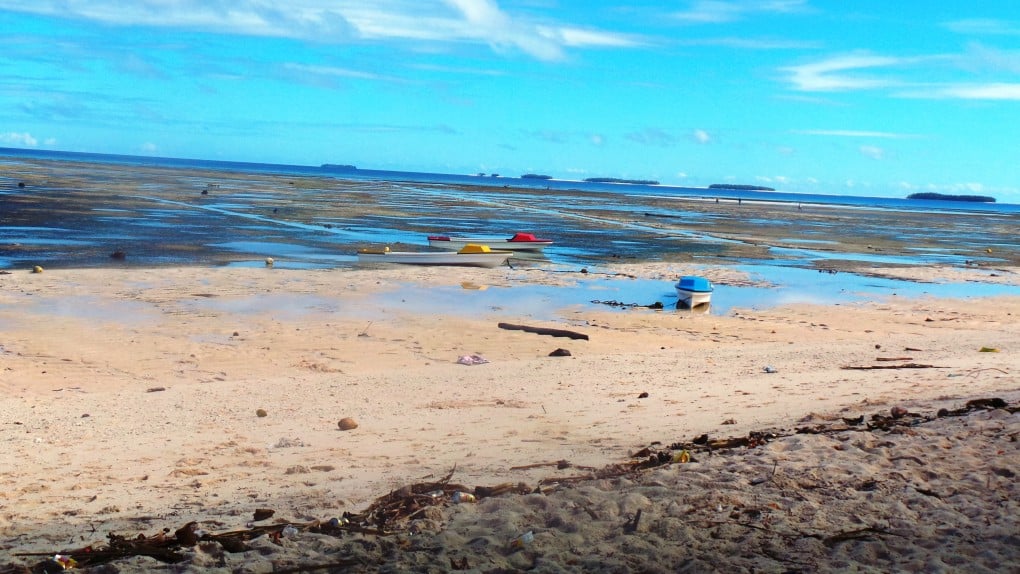
The Ontong Java group is one of the largest in the world consisting of 120 small, low coral atolls that enclose a vast lagoon extending 70 kilometers from Luaniua in the southeast to Pelau in the north.
Approximately 3,000 people live in both permanent and semi-permanent houses on both islands.
The Lord Howe Settlement in the capital of Honiara is home to some 600 people from Ontong Java Atoll who can only claim ancestral ties to the atoll, but have no permanent home.
These residents are susceptible to sea level rise, tsunami, heat waves and other natural disasters like cyclones. But even more troubles lie ahead for those who could be forced to leave their homes from the natural intrusion of the rising Pacific Ocean.
Their traditional food sources like swamp taro, potato, coconut and other fruit trees are being threatened by the current El Nino -induced drought. Over-fishing and extraction of sea resources like sea cucumber for commercial use by local residents means sea food and marine lives are also becoming scarce.
Root crops such as swamp taro are dying due to salt-water infiltrating into the land, which is no more than three meters above sea level.
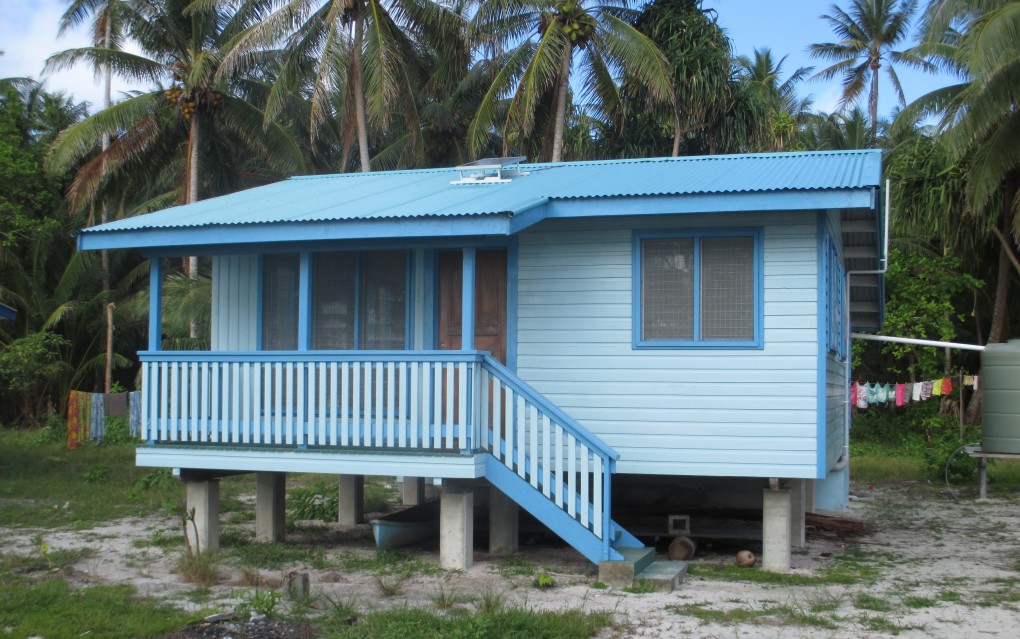
Their strong attachment to the land, sea, family and culture could be destroyed by the very ocean they depended on for thousands of years, as well as from normal occurrences such as tropical cyclones on this remote part of the Pacific Islands.
Government intervention so far has been through the subsidization of shipping costs for basic food items like rice, biscuits, sugar and needed fuel for fishing boat engines.
On the regional level, the Secretariat of the Pacific Regional Environment Programme (SPREP) initiated the Pacific Adaptation to Climate Change (PACC) project, mainly focused on exploring food security for the Ontong Javans.
Canary in the coal mine
In many ways, atoll residents are the canary in the coal mine for the rest of the Soloman Islands archipelago when it comes to natural disasters. They are the first to be affected by the rising threats of climate change.
Adaptation measures under PACC such as new methods of farming and packaging of local food sources have received some coverage, but it’s the question of ‘relocation’ that has dominated mainstream discourses on a national and regional level. The Ontong Java Atoll and other low-lying islands in the Pacific Ocean such as Tuvalu and Kiribati face common threats from climate-induced impacts on their environment and livelihoods.
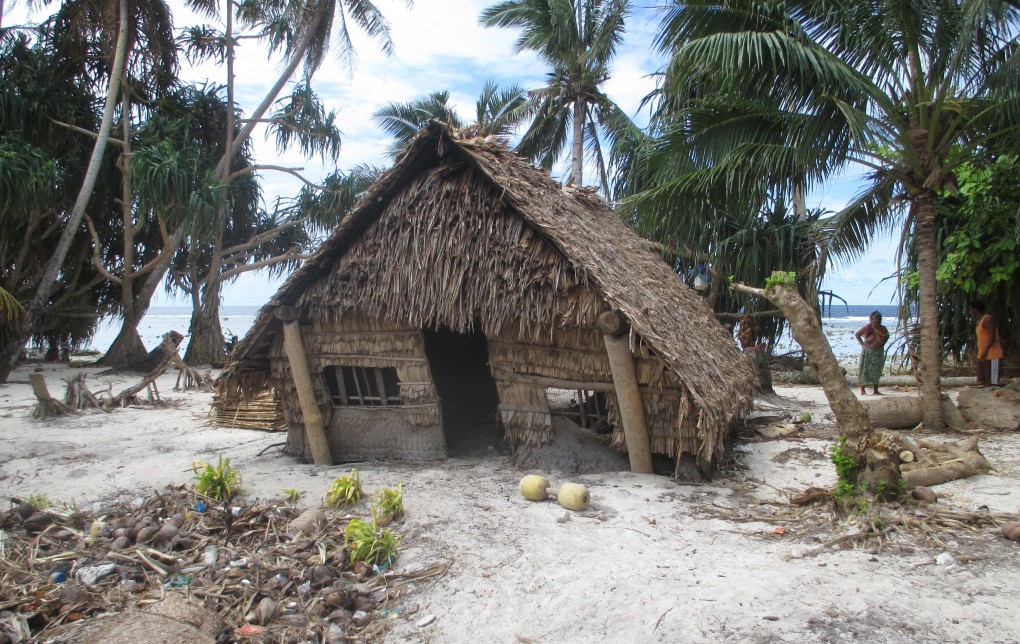
Work is underway on a national climate change policy, according to Dr. Melchoir Mataki, the Permanent Secretary of the Ministry of Environment, Climate Change, Disaster Management and Meteorology (MECDM). “The current government made it a priority for us to develop a climate change legislation,” he said. “Preparatory work on the draft legislation has been completed and this will be further advanced in 2016.”
Mataki acknowledged that the issue of relocation is often perceived as a last option, but for many parts of the country it’s becoming the only “reasonable” option left. “[It] cannot be postponed any longer,” he said,” however relocation is a sensitive and delicate matter because it touches a variety of contentious issues such as land tenure and finance.”
“[It’s] not only about the physical relocation of people and their properties,” Mataki added, “but also entails political, social, economic and cultural shifts and losses for people who will move and those who will receive them.” For these reasons, he said the government is focusing on identifying the country’s most vulnerable populations in order to come up with appropriate relocation guidelines. Responsibility for this task has fallen to the Ministry of Lands, Housing and Survey (MLH&S).
Relocation may be the only solution for the people of Ontong Java Atoll in the near future, but it is easier said than done.
Scott Leckie who currently serves as the director of Displacement Solutions, a Geneva-based NGO working to assist people who are displaced from their homes due to conflict or climate change shared similar sentiments.
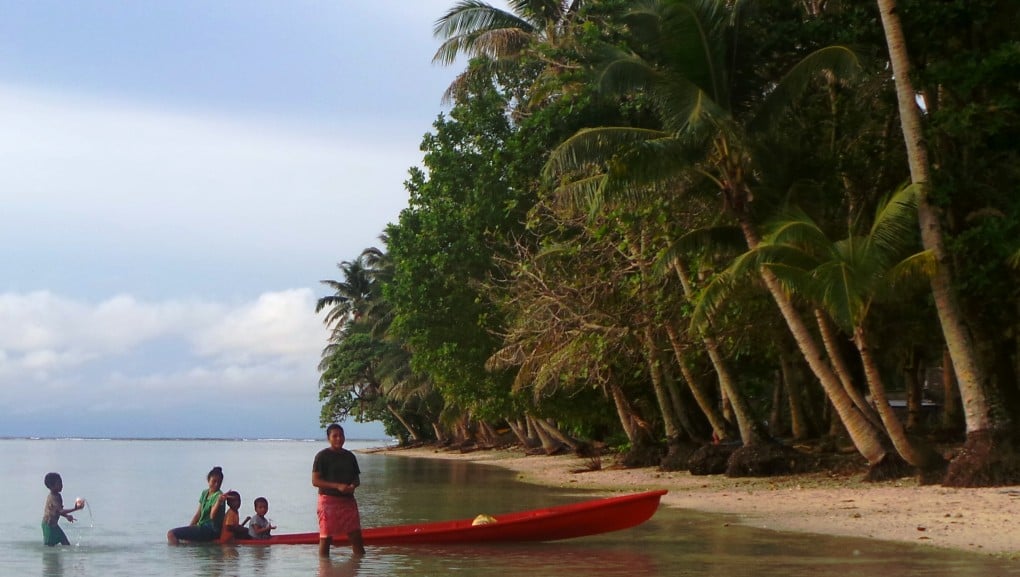
“Our position is essentially that no one should ever be forced to move from their traditional homes and land,” he said,” and that if planned relocation is contemplated, that this must be voluntary and wholly-driven by the people themselves, supported by a large majority of those to relocate, and be relocated to a place of the community’s choosing.”
Leckie, who was born in Los Angeles with Netherlands citizenship and currently resides in Australia said planned relocation processes should be guided by the Peninsula Principles on Climate Displacement Within States (2013) and appropriate, detailed and adequately funded planning must precede any actual movement of people.
“As with all citizens from Ontong Java, the people of the atoll have rights and any relocation must be a right-based approach which respects, preserves and improves their human rights in the process,” he said.
Some residents have gone on record to say that is relocation becomes necessary, they would choose to move to Isabel Province, which is larger than the province under which they are currently governed as part of the Malaita Outer Islands (MOI).
In such cases, Leckie said that intensive work should be done with host communities near the relocation site to ensure a smooth transition. “A successful of relocation is extremely difficult, but it can work if all parties work together to make it work,” he noted.
His firm, Displacement Solutions, has experience on the ground in Ontong Java. Their photojournalist Beni Knight spend two months on the atoll this year documenting the ongoing challenges faced by residents. Relocation, Leckie said, appears all but certain. “Land is eroding fast, some villages have already disappeared, crops are ever more difficult to grow,” he said. “If relocation is the option the people of Ontong Java choose, this will be particularly difficult for older people, many of whom will not want to leave and who may have never or very rarely ever left the atoll before.”
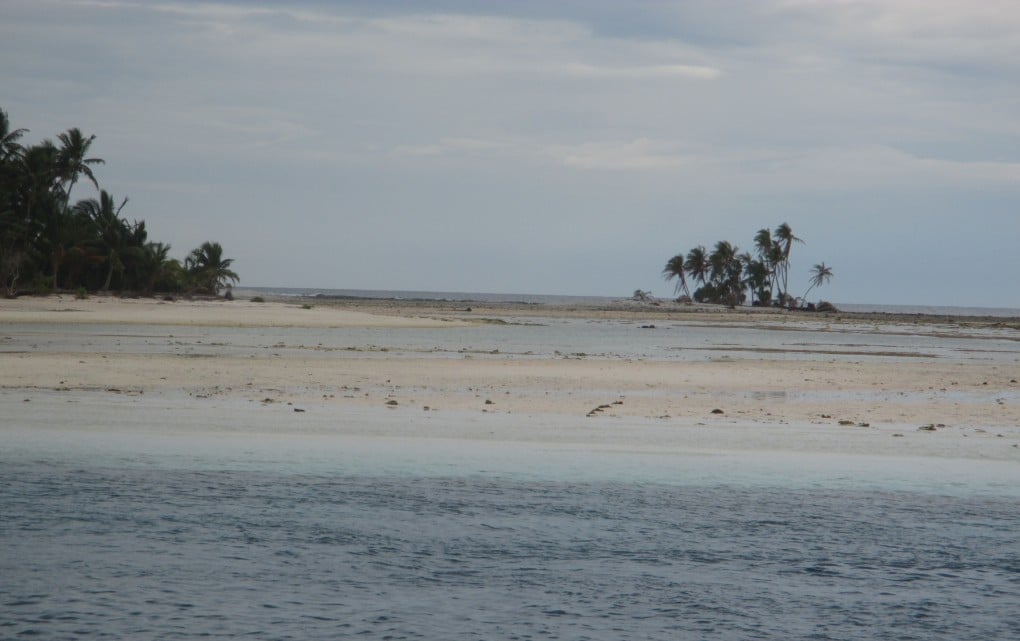
When it comes to climate displacement, experts say that people face a difficult choice: stay and adapt, move as a community in a planned manner, or migrate on a person by person or family by family basis. “We generally favor relocation over migration as it is organized, well thought-out, and planned,” Leckie said. “It has the best chance of preserving the unique cultures that so many people of the islands live with and cherish so much.”
Equally vulnerable are Ontong Javans residing in the heart of capital Honiara in the Lord Howe Settlement. The Settlement is located beside the river and coast of Mataniko River delta.
A United Nations Human Settlements Programme (UN-Habitat) Climate Change Vulnerability Assessment in 2014 noted the Settlement has an area of 2.8 hectares with a population of 631–295 men and 336 women. According to the report, there is a population density of 223 persons per hectare, “the highest among the hotspots studied…packed with houses spaced closely together.”
Doctorate student Coggan Kuare, who left the Solomon Islands to study at Hokkaido University in Japan, said the Settlement itself needs relocating as the devastating floods of April 2014 which killed more than 20 people indicate that climate change poses great risk to the settlers.
“Flooding from Mataniko River, sea level rise and tsunami are the greatest threats to the Ontong Java settlers of Lord Howe Settlement,” said Kuare whose is working on the thesis “Disposition, Expansion and Relocation of Honiara City.”
Hoping for change
With world leaders gathered in Paris for the United Nations (UN) climate negotations, the plight of Ontong Javans both on the atoll and Lord Howe Settlement cannot be ignored.
This year Reverend Nigel Kelaepa, a prominent Ontong Javan is observing the negotiations in Paris. It’s his first time at such a high level climate event.
The issue of relocation may appear insignificant to some, but reducing global greenhouse gas emissions could save the Ontong Javans from the rising sea level. Led by Samuel Manetoali from the Minister of Environment, Climate Change and Disaster and Meteorology (MECDM), the Solomon Islands delegation to Paris has joined other small island states to lobby for the reduction of the global greenhouse gases.
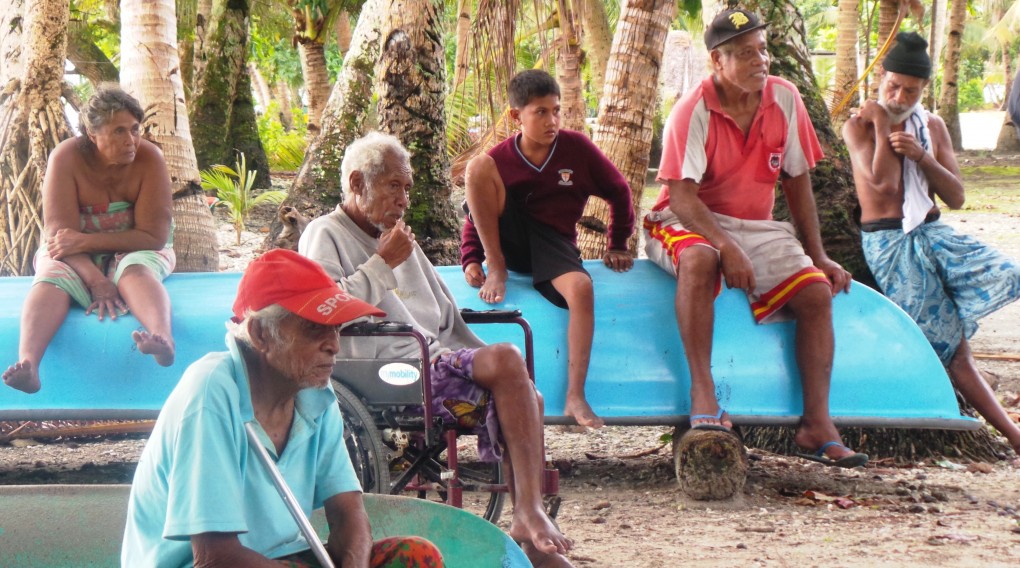
“We want an ambitious and legally binding agreement within the context of the UNFCCC that obliges major emitters to reduce their emissions to restrain global temperature change to well below 1.5 degrees Celsius, treats loss and damage as a distinct element of the agreement separate from adaptation, recognizes the special case of the most vulnerable parties such as the Solomon Islands, and fast tracks financial and technical resources in the most transparent, accessible and ‘non-loan’ modalities to meet our adaptation and mitigation needs,” said Dr. Mataki, MECDM’s Permanent Secretary.
In its Intended Nationally Determined Contribution (INDC) submitted to the UNFCCC, the Solomon Islands pledged to reduce greenhouse gas emissions by 12% below 2015 levels by 2025 and 30% below 2015 levels by 2030. With international assistance, the Solomon Islands can reduce its emissions by more than 50% by 2050, but Mataki said the pledges of major emitters have fallen short. “Global action to address climate change must not leave anyone behind,” he said, “it must be inclusive as much as possible.”
Politics aside, the people of Ontong Java bear little responsibility for the rising seas, but residents are looking to world leaders to address the root causes of their plight before their island home disappears under their feet.




